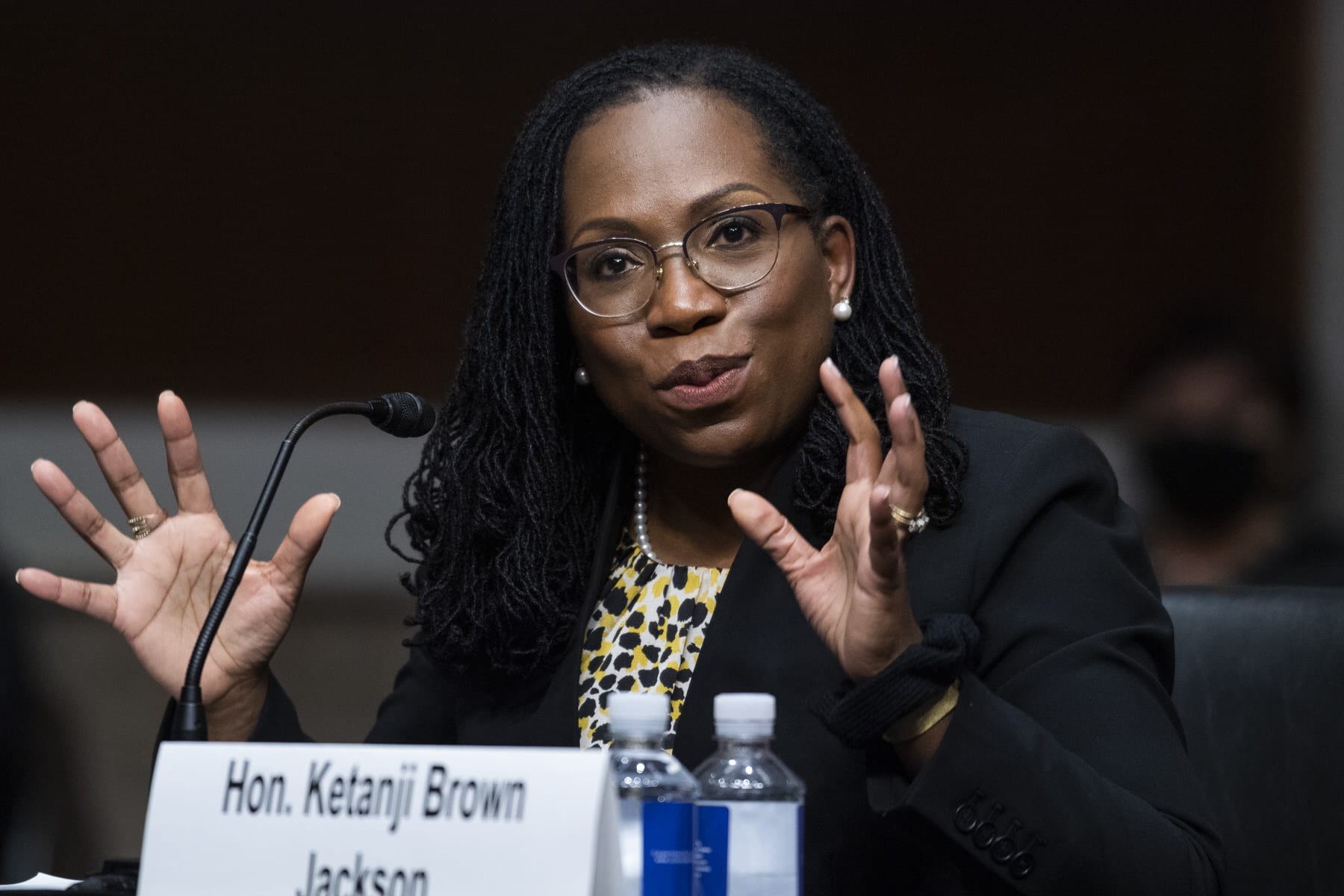A progressive Democratic group on Monday launched a six-figure ad campaign to support the confirmation of Ketanji Brown Jackson to a federal appeals court as the Senate plans to ramp up voting on President Joe Biden’s picks to fill more than 80 federal court vacancies.
Jackson, who has served on the U.S. District Court for the District of Columbia since 2013, is Biden’s choice to replace his attorney general, Merrick Garland, on the U.S. Court of Appeals for the District of Columbia, a Supreme Court proving ground.
Jackson is also thought to be a top contender to be the first Black woman to serve on the Supreme Court should Biden be presented with a high-court vacancy, fulfilling his presidential campaign pledge to nominate a Black woman if he has the opportunity.
“She helped reform the justice system, and defend those who couldn’t afford a lawyer. Now, she is the first in a wave of judges who will uphold the rights of all of us, not just the rich and powerful,” states the radio and digital ad from the group Demand Justice that was previewed by The 19th.
Demand Justice is a group that formed in the wake of the 2016 election, when Republican voters were motivated by former President Donald Trump’s promise to nominate conservative judges and justices. It aims to encourage Democrats to vote on the same issue.
Trump delivered on his pledge to nominate conservative jurists, installing three Supreme Court justices — Neil Gorsuch, Brett Kavanaugh and Amy Coney Barrett — and more than 200 federal judges over his four-year term. Though he nominated more women jurists than his Republican predecessors, Trump’s picks still skewed White and male, according to a Pew Research Center analysis of government data.
Jackson is a Harvard University graduate who clerked for Justice Stephen Breyer, the Supreme Court’s most senior liberal member, who at 82 is facing pressure from some Democrats to step down from the lifetime post. A vacancy on the nine-member court would allow Biden to nominate a replacement ahead of the 2024 midterm elections, when his party could lose control of the Senate, which handles confirmations, including to the Supreme Court.
Jackson, a former federal public defender, served as vice chair of the U.S. Sentencing Commission after being nominated by former President Barack Obama. During her tenure, the commission amended its guidelines for offenses related to crack cocaine in a move meant to address disparities in punishment for crack and powder cocaine offenses. She has also practiced at private law firms.
The Senate Judiciary Committee last month voted 13-to-9 to advance Jackson’s nomination to the D.C. appeals court, with two Republicans joining Democrats. Judicial nominees are then approved by a simple-majority vote in the 100-seat Senate, which is evenly split between the two parties and where Vice President Kamala Harris breaks any potential ties.
Polling done last month by the minority-owned firm HIT Strategies for Demand Justice and Higher Heights, a group that supports Black women’s leadership, showed that Democratic and independent women are politically motivated by the idea of a Black woman on the Supreme Court, according to results shared with The 19th.
Nearly 85 percent of Democratic women said it would be important that their senators support a Black woman high-court nominee. Roughly 67 percent of Black women said Breyer should retire so a Black woman could be nominated to the court. About a third of those who supported a Black woman Supreme Court nominee said the most important reason is that it would promote equality, and another 18 percent said it would help achieve judicial diversity.





